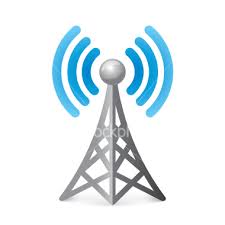Event Monitor versus Mobile Cardiac Telemetry?
i Event Monitor or Mobile Cardiac Telemetry (MCT or MCOT) is a common topic of discussion today among cardiovascular specialists. Many question when it is appropriate to order a traditional patient activated Event Monitor or Mobile Cardiac Telemetry (MCT). Mobile Cardiac Telemetry remains a relatively new form of ambulatory monitoring that has substantial technological advantages over traditional looping Event Monitors.
Event Monitor or Mobile Cardiac Telemetry (MCT or MCOT) is a common topic of discussion today among cardiovascular specialists. Many question when it is appropriate to order a traditional patient activated Event Monitor or Mobile Cardiac Telemetry (MCT). Mobile Cardiac Telemetry remains a relatively new form of ambulatory monitoring that has substantial technological advantages over traditional looping Event Monitors.
An Event Monitor has been a traditional electrocardiographic (ECG) diagnostic tool for Cardiologists dating back to 1980. The use of an Event Monitor is intended to capture a symptomatic event that is too infrequent to capture with a continuous 24 hour Holter Monitor. Event Monitors have proven to be useful in that they capture only the EKG information at the time the symptom occurs. However, if there is no relevant EKG captured, the study may not be useful.
There are several types of Event Monitor technologies available. These include:
- Non-Continuous ‘memory loop” Event Monitors
- Auto-Trigger Event Monitors
- Implantable ‘auto-detect’ Event Monitors
- Implantable ‘looping” Event Monitors
- Mobile Cardiac Telemetry (MCT) monitoring
Traditionally, most practicing Cardiology specialists have commonly use the “memory loop” Event Monitors. This was the gold standard prior to the advent of Mobile Cardiac Telemetry (MCT), and long term continuous (extended) Holter monitoring.
 There is little doubt that more data acquired, analyzed and reported will net the clinician better prognostic value. The idea with traditional long term Event Monitoring was to try to capture symptoms & events that were more transient than a 24 hour Holter monitor. It has been well studied over the decades that a significant amount of arrhythmias go undetected with a traditional 24 hour study. With that being the case, wearable technology has improved the patient monitoring experience so they can tolerate & adhere to longer term studies where more ECG data is required for clinical confidence.
There is little doubt that more data acquired, analyzed and reported will net the clinician better prognostic value. The idea with traditional long term Event Monitoring was to try to capture symptoms & events that were more transient than a 24 hour Holter monitor. It has been well studied over the decades that a significant amount of arrhythmias go undetected with a traditional 24 hour study. With that being the case, wearable technology has improved the patient monitoring experience so they can tolerate & adhere to longer term studies where more ECG data is required for clinical confidence.
Today, most clinicians now order a 3 – 7 day continuous Holter monitor & a mobile cardiac telemetry study for monitoring periods exceeding 7 days. Mobile Cardiac Telemetry (MCT) technology far exceeds the diagnostic quality of any non-continuous cardiac event monitor or a continuous 7 day study that does not provide real-time notifications. The issue with Mobile Cardiac Telemetry is the majority of the MCT companies in the industry do NOT do ‘continuous’ monitoring. They are simply auto detect or patient activated which lacks in credibility as there is no method to go back & interrogate the device to see what could have been potentially missed with a auto-detect or looping device. Therefore the clinical value of long term continuous AECG (or extended Holter) has grown tremendously especially now that many of them are packaged a wearable patch configuration.
As a summary, most clinicians will order an extended continuous form of Holter monitoring first with longer term options to follow when necessary. Many cases will warrant a continuous MCT study first when the monitoring duration is already known. The benefit of MCT is the longer period is often not necessary because the superior monitoring technology with continuous MCT monitoring will provide real-time alerts which often results in more appropriate monitoring durations based on the actual activity in the report not the ‘established’ monitoring period. This is beneficial both to the patient as well as the
Although MCT monitoring has virtually replaced traditional looping event monitoring, both are still used. In many cases, the insurance coverage can dictate the monitoring version when MCT is not covered or vice versa. This is another reason why continuous MCT monitoring is needed because it provides all of the data that would be available in an extended Holter monitor study but with the capaiblity of monitoring for up to 30 days.
 Both MCT and Event monitoring have similar indications but Mobile Cardiac Telemetry is perceived to be much more expensive in use as compared to traditional ‘memory loop’ symptomatic monitoring. The industry pioneer CardioNet / BioTelemetry (now Philips) argues that their Mobile Outpatient Telemetry (MCOT®) devices are more effective in detecting cardiac rhythm abnormalities (compared to ‘looping’ event) while simultaneously lowing the cost of care for these patients.
Both MCT and Event monitoring have similar indications but Mobile Cardiac Telemetry is perceived to be much more expensive in use as compared to traditional ‘memory loop’ symptomatic monitoring. The industry pioneer CardioNet / BioTelemetry (now Philips) argues that their Mobile Outpatient Telemetry (MCOT®) devices are more effective in detecting cardiac rhythm abnormalities (compared to ‘looping’ event) while simultaneously lowing the cost of care for these patients.
So when should an Event Monitor versus Mobile Cardiac Telemetry (MCT or MCOT) be ordered?
We can start by evaluating the definitions:
The use of patient activated or auto-activated external ambulatory event monitors is deemed medically necessary as a diagnostic alternative to Holter Monitoring in the following situations:
- Patient who experience infrequent symptoms (less frequent than 48 hours) suggestive of cardiac arrhythmias (palpitations, dizziness, pre-syncope, or syncope)
- Patients with Atrial Fibrillation who have treated with catheter ablation, and in who discontinuation of systemic anti-coagulation is being considered
For Medicare Advantage, cardiac event monitoring detection involving the use of a long term monitor by a patient which includes event monitors and Mobile Cardiac Telemetry is considered medically necessary for:
- Detection, characterization, and documentation of symptomatic transient arrhythmias when the frequency of the symptoms is limited and use of 24 Holter Monitoring is unlikely to capture and document the arrhythmia;
- Regulation of anti-arrhythmic medication dosages, when needed to assess efficacy of treatment
- To Monitor patients who have had surgical or ablative procedures for arrhythmias
These appear to be clear definitions for the use of each type of long term monitoring. As a general rule, it is best practice to adhere to the guidelines of use with the exception of the following:

- Technological limitations of patient activated symptomatic event monitoring such as sleep
- Patient interaction / compliance is questionable
- Technical ability to perform download
- Mental mind state to keep up with performing tasks
- Potentially longer study for patient than one that captures & transmits automatically
Always keep in mind to demonstrate the need with Medicare & insurance coverage the for Mobile Cardiac Telemetry compared to Cardiac Event Monitoring or other forms of extended monitoring such as cardiac event monitoring.
Resources:




